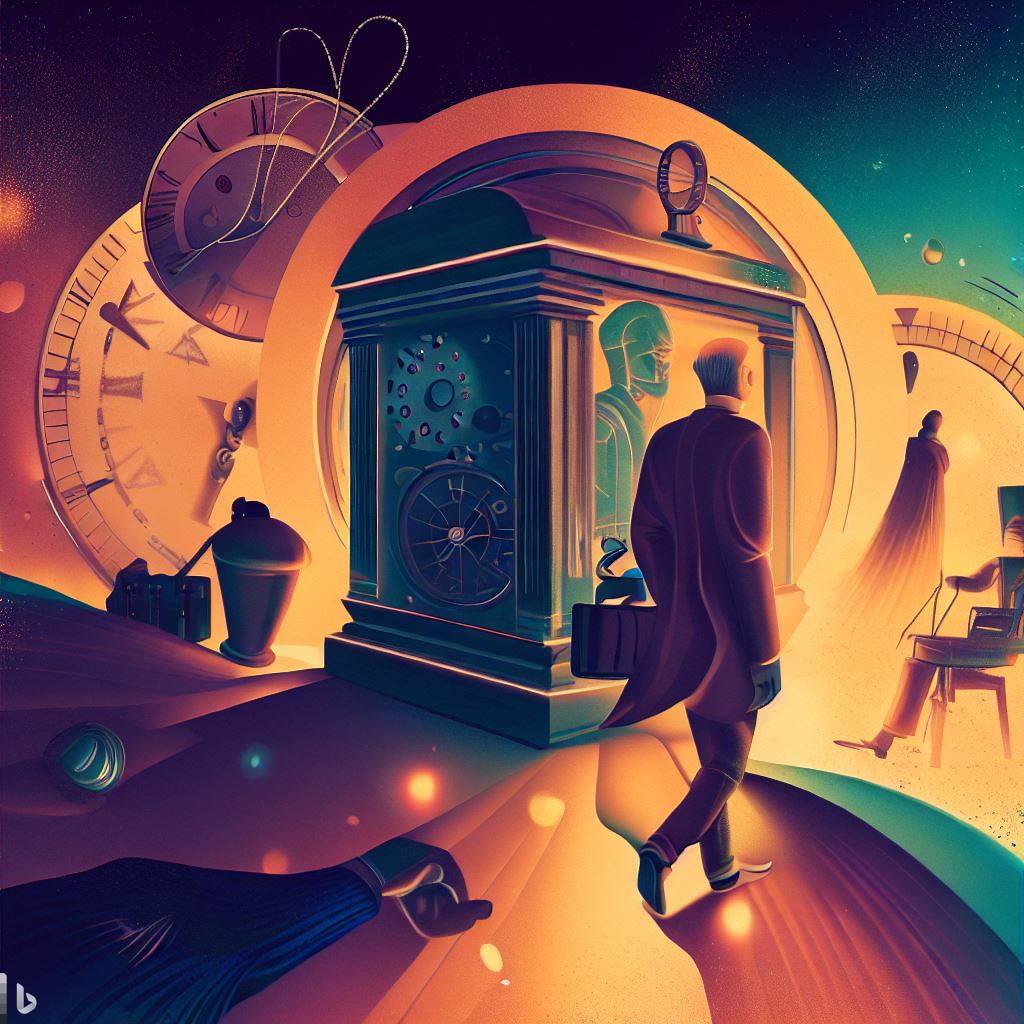Time Travel Ethics:
The Dangers and Responsibilities of Altering the Past

Time travel is a fascinating concept that has captured the imagination of many people for centuries. The idea of being able to visit different periods of history, witness historical events, meet famous figures, or even change the course of history is appealing and exciting. However, time travel also raises many ethical questions and challenges that need to be carefully considered before embarking on such an adventure.
One of the most important ethical issues related to time travel is the potential impact of altering the past. If time travel is possible, then it implies that the past is not fixed and immutable, but rather flexible and malleable. This means that any action taken by a time traveller in the past could have significant consequences for the present and the future. For example, a time traveller could prevent a war, save a life, invent a technology, or influence a decision that would alter the course of history in a major way. Alternatively, a time traveller could also cause a disaster, end a life, destroy a technology, or interfere with a decision that would have negative effects on history.
The problem with altering the past is that it creates paradoxes and inconsistencies that could threaten the logical coherence and stability of reality. For instance, if a time traveller goes back in time and kills their own grandfather before their father is born, then they would prevent their own existence and thus create a contradiction. How could they have travelled back in time if they were never born? This is known as the grandfather paradox, and it illustrates the logical impossibility of changing the past without creating contradictions. Another example of a paradox is if a time traveller goes back in time and gives themselves a piece of information or an object that they did not have before. Where did that information or object come from? This is known as the bootstrap paradox, and it shows the circular causality of changing the past without creating an origin.
The paradoxes and inconsistencies created by altering the past could have serious implications for reality. They could create temporal anomalies, such as loops, splits, or branches in the timeline that would make history unpredictable and chaotic. They could also create causal loops, such as predestination or self-fulfilling prophecies, that would make history deterministic and fixed. Moreover, they could create ethical dilemmas, such as moral responsibility or free will, that would challenge the values and principles of human beings.
Therefore, time travel ethics requires that time travellers respect and preserve the integrity and continuity of history. They should not interfere with or change the past in any way that would create paradoxes or inconsistencies that would endanger reality. They should also not exploit or abuse their knowledge or power over the past for personal gain or malicious intent. They should act as observers and learners rather than actors and influencers. They should follow the principle of non-interference or minimal interference when visiting the past.
Time travel ethics also requires that time travellers be aware and accountable for the risks and consequences of their actions. They should not assume that they know better than history or that they have the right to change it. They should also not ignore or disregard the potential effects of their actions on other people or events in the past, present, or future. They should consider the ethical implications of their actions from different perspectives and viewpoints. They should weigh the costs and benefits of their actions and evaluate their moral justification and motivation.
Time travel ethics is a complex and challenging field that demands careful thought and reflection from anyone who wishes to explore the mysteries of time. Time travel is not a game or a toy, but a serious responsibility that requires respect and caution. Altering the past is not only dangerous but also unethical, as it violates the natural order and harmony of reality. Time travellers should follow the golden rule: do unto history as you would have history do unto you.
About the Creator
Hector Sampson
A computer whizz, radio & TV presenter, author, speaker and polyglot. He started writing brief notes to himself, giving himself tips and telling himself off. He has written 25 books in the areas of self-help, spirituality and nonfiction.






Comments
There are no comments for this story
Be the first to respond and start the conversation.